 Colon polyps are rather common, and there is a specific type of polyps that increases the risk of colon cancer, which is also a widespread problem. According to a new clinical study from the University of Leeds in England, a concentrated form of the omega-3 fatty acid, EPA, which is found in oily fish and fish oil supplements, helps reduce the number of colon polyps. The same is the case with aspirin. The two preparations work differently, however, depending on where in the colon the polyps are found, and aspirin may have long-term side effects. Earlier research has shown that supplements of selenium and antioxidants have a preventive effect, which appears to be even greater.
Colon polyps are rather common, and there is a specific type of polyps that increases the risk of colon cancer, which is also a widespread problem. According to a new clinical study from the University of Leeds in England, a concentrated form of the omega-3 fatty acid, EPA, which is found in oily fish and fish oil supplements, helps reduce the number of colon polyps. The same is the case with aspirin. The two preparations work differently, however, depending on where in the colon the polyps are found, and aspirin may have long-term side effects. Earlier research has shown that supplements of selenium and antioxidants have a preventive effect, which appears to be even greater.
- but researchers warn against reduced intake levels
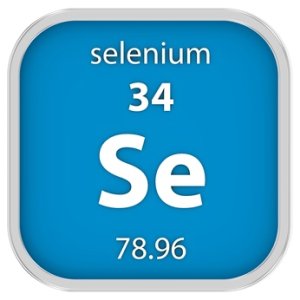 Even if you eat a healthy and balanced diet, it can be difficult to get enough selenium because of climate changes and nutrient depletion of the soil, especially in Europe. This was shown in a study conducted by Swiss scientists. Selenium is very important for the immune system, but how much do we need to be optimally protected against infections? There also appears to be a connection between widespread selenium deficiency and the increased rate of cancer.
Even if you eat a healthy and balanced diet, it can be difficult to get enough selenium because of climate changes and nutrient depletion of the soil, especially in Europe. This was shown in a study conducted by Swiss scientists. Selenium is very important for the immune system, but how much do we need to be optimally protected against infections? There also appears to be a connection between widespread selenium deficiency and the increased rate of cancer.
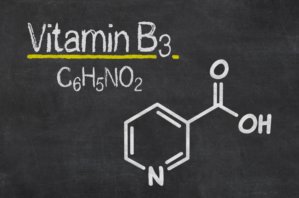 Swiss scientists have observed that if you take a type of vitamin B3 called nicotinamide riboside it increases the production of blood cells by improving their stem cells. This may help solve serious problems associated with anemia as a result of stem cell-based therapies that are used to treat leukemia and aggressive lymphomas.
Swiss scientists have observed that if you take a type of vitamin B3 called nicotinamide riboside it increases the production of blood cells by improving their stem cells. This may help solve serious problems associated with anemia as a result of stem cell-based therapies that are used to treat leukemia and aggressive lymphomas.
- and preventing cancer from spreading
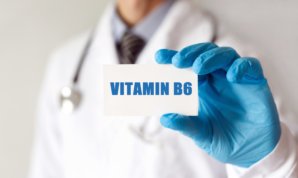 Vitamin B6is needed for over 150 enzyme processes and has an overlooked role in the prevention of inflammation, which is a common thread in most chronic diseases, including cancer. Severe vitamin B6 deficiencies are rare, but scientists believe that even moderate deficiencies of the nutrient can increase the risk of many diseases. Deficiencies and poor utilization are a result of unhealthy diets, ageing, stimulant abuse, hormone pills and certain medical drugs, which means that many people are at risk of lacking this important vitamin.
Vitamin B6is needed for over 150 enzyme processes and has an overlooked role in the prevention of inflammation, which is a common thread in most chronic diseases, including cancer. Severe vitamin B6 deficiencies are rare, but scientists believe that even moderate deficiencies of the nutrient can increase the risk of many diseases. Deficiencies and poor utilization are a result of unhealthy diets, ageing, stimulant abuse, hormone pills and certain medical drugs, which means that many people are at risk of lacking this important vitamin.
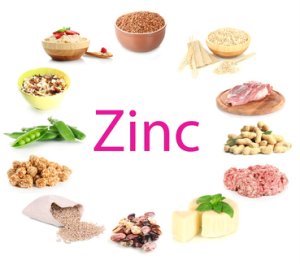 Earlier studies have shown that zinc plays an important role for our health and for preventing esophageal cancer. However, it has been a puzzle to science to understand how zinc protects against this widespread cancer form. Now, Professor Zui Pan and a team of researchers from the University of Texas at Arlington, USA, have identified the mechanisms through which zinc protects healthy cells and prevents cancer cells from spreading in the esophagus. The scientists behind the new study believe that zinc given in the right dosages has a great potential for helping to prevent the disease and serving as an adjuvant in therapy. Their study is published in The FASEB Journal.
Earlier studies have shown that zinc plays an important role for our health and for preventing esophageal cancer. However, it has been a puzzle to science to understand how zinc protects against this widespread cancer form. Now, Professor Zui Pan and a team of researchers from the University of Texas at Arlington, USA, have identified the mechanisms through which zinc protects healthy cells and prevents cancer cells from spreading in the esophagus. The scientists behind the new study believe that zinc given in the right dosages has a great potential for helping to prevent the disease and serving as an adjuvant in therapy. Their study is published in The FASEB Journal.
 One in nine Danish women gets breast cancer. Diet and lifestyle play a major role, and now an American study shows that omega-3 fatty acids, which are typically found in oily fish and fish oil supplements, may help prevent breast cancer cells from growing and spreading. According to lead investigator Saraswoti Khadge, who is affiliated with the University of Nebraska Medical Center, omega-3 fatty acids support the body’s immune defense and certain anti-inflammatory mechanisms. This study is in line with earlier research, so it may very well be prudent to make sure to get plenty of omega-3 for preventing and treating breast cancer.
One in nine Danish women gets breast cancer. Diet and lifestyle play a major role, and now an American study shows that omega-3 fatty acids, which are typically found in oily fish and fish oil supplements, may help prevent breast cancer cells from growing and spreading. According to lead investigator Saraswoti Khadge, who is affiliated with the University of Nebraska Medical Center, omega-3 fatty acids support the body’s immune defense and certain anti-inflammatory mechanisms. This study is in line with earlier research, so it may very well be prudent to make sure to get plenty of omega-3 for preventing and treating breast cancer.
 Pancreatic cancer remains one of the deadliest cancers even with improved therapies. Because many people are diagnosed too late and the prognoses are generally poor it is essential to focus a lot more on prevention for instance by striving to maintain normal weight and avoiding smoking. According to a new meta-analysis published in Nutrition Journal, it appears that large quantities of vitamin B6 from diet or supplements have the potential to lower the risk of pancreatic cancer. Earlier studies have also shown that vitamin B6 lowers the risk of bowel cancer.
Pancreatic cancer remains one of the deadliest cancers even with improved therapies. Because many people are diagnosed too late and the prognoses are generally poor it is essential to focus a lot more on prevention for instance by striving to maintain normal weight and avoiding smoking. According to a new meta-analysis published in Nutrition Journal, it appears that large quantities of vitamin B6 from diet or supplements have the potential to lower the risk of pancreatic cancer. Earlier studies have also shown that vitamin B6 lowers the risk of bowel cancer.
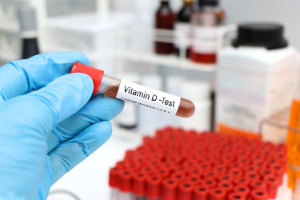 Melanoma is a type of malignant skin cancer that spreads rapidly. Being vitamin D-deficient doubles the risk of dying of the disease, according to a Spanish study that was presented at the European Academy of Dermatology and Venereology congress. It is commonly known that sunburns, which one should generally avoid, increase the risk of contracting skin cancer. But we must not forget that the summer sun is our main source of vitamin Dand at our latitude, it necessary to take a vitamin D supplement in the wintertime. People who avoid the sun or have difficulty with synthesizing vitamin D in their skin should take a supplement all year round.
Melanoma is a type of malignant skin cancer that spreads rapidly. Being vitamin D-deficient doubles the risk of dying of the disease, according to a Spanish study that was presented at the European Academy of Dermatology and Venereology congress. It is commonly known that sunburns, which one should generally avoid, increase the risk of contracting skin cancer. But we must not forget that the summer sun is our main source of vitamin Dand at our latitude, it necessary to take a vitamin D supplement in the wintertime. People who avoid the sun or have difficulty with synthesizing vitamin D in their skin should take a supplement all year round.
 Breast cancer is very common in the Western world and modern society. The disease is thought to be associated with lifestyle factors and lack of essential nutrients. For instance, it has been known for a long time that lack of vitamin D increases the risk of breast cancer. According to a new study that is published in the science journal Endocrinology, there is also a link between lack of vitamin D and the development of metastases in the lungs. Previous research also shows that the widespread deficiency of selenium, iodine, omega-3 fatty acids, and melatonin can increase the risk of breast cancer but supplements can help prevent the disease and possibly be used as add-on therapy.
Breast cancer is very common in the Western world and modern society. The disease is thought to be associated with lifestyle factors and lack of essential nutrients. For instance, it has been known for a long time that lack of vitamin D increases the risk of breast cancer. According to a new study that is published in the science journal Endocrinology, there is also a link between lack of vitamin D and the development of metastases in the lungs. Previous research also shows that the widespread deficiency of selenium, iodine, omega-3 fatty acids, and melatonin can increase the risk of breast cancer but supplements can help prevent the disease and possibly be used as add-on therapy.
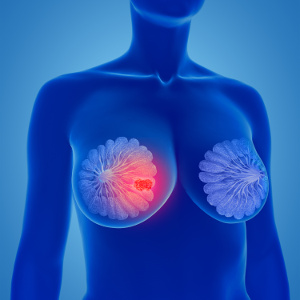 Breast cancer is the leading cancer form among women. Even though treatments have gotten a lot better the disease still has a high death toll. A Swedish-German study shows that having low levels of seleniumin the blood worsens the prognosis, whereas having a higher selenium content in the blood can increase the odds of surviving breast cancer. Unfortunately, selenium deficiency is rather common in Europe. According to the scientists behind the new study, measurements of selenium status can be used to optimize blood levels of the nutrient, thereby improving treatment correspondingly.
Breast cancer is the leading cancer form among women. Even though treatments have gotten a lot better the disease still has a high death toll. A Swedish-German study shows that having low levels of seleniumin the blood worsens the prognosis, whereas having a higher selenium content in the blood can increase the odds of surviving breast cancer. Unfortunately, selenium deficiency is rather common in Europe. According to the scientists behind the new study, measurements of selenium status can be used to optimize blood levels of the nutrient, thereby improving treatment correspondingly.
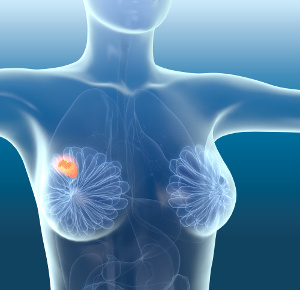 Having higher blood levels of selenium, an essential trace element, increases a breast cancer patient’s chances of 10-year survival, according to a Polish population study that is published in the science journal Nutrients. Also, earlier research has shown that supplementation with selenium yeast can lower the risk of contracting a variety of different cancer forms. The agricultural soil in Europe is very low in selenium and that is one of the reasons why selenium deficiencies are so common. The question is how much selenium we need to optimize levels in the blood.
Having higher blood levels of selenium, an essential trace element, increases a breast cancer patient’s chances of 10-year survival, according to a Polish population study that is published in the science journal Nutrients. Also, earlier research has shown that supplementation with selenium yeast can lower the risk of contracting a variety of different cancer forms. The agricultural soil in Europe is very low in selenium and that is one of the reasons why selenium deficiencies are so common. The question is how much selenium we need to optimize levels in the blood.
- and lacking certain nutrients may play a vital role
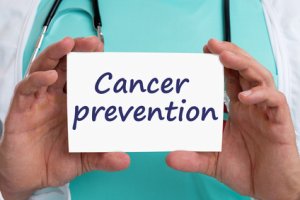 New figures from the cancer database, Nordcan, reveal that Danish women hold the record in cancer prevalence, and both sexes still have the lowest cancer survival rate among the Nordic countries. Experts claim that this is linked to our lifestyle. However, cancer even occurs among people with healthy lifestyles, and international studies suggest that modern diets tend to lack optimal amounts of selenium, vitamin D and omega-3, all of which have cancer-preventive properties. Research also points to melatonin, also known as the sleep hormone.
New figures from the cancer database, Nordcan, reveal that Danish women hold the record in cancer prevalence, and both sexes still have the lowest cancer survival rate among the Nordic countries. Experts claim that this is linked to our lifestyle. However, cancer even occurs among people with healthy lifestyles, and international studies suggest that modern diets tend to lack optimal amounts of selenium, vitamin D and omega-3, all of which have cancer-preventive properties. Research also points to melatonin, also known as the sleep hormone.
 The number of seniors in the world is growing steadily which means a surge in problems like cardiovascular disease, cancer, respiratory illnesses, overweight, diabetes, rheumatism, dementia, and Alzheimer’s disease. These diseases that have a widespread impact on human lives and are a burden to society are often linked to chronic inflammation. A group of scientists therefore decided to look closer at studies that have found a positive effect of the omega-3 fatty acids EPA and DHA on cognitive functioning, maintenance of muscle mass, and prevention and treatment of a host of serious diseases that are related to ageing. It is vital to start supplementing early and to take the right doses, according to the new review article published in Nutrients.
The number of seniors in the world is growing steadily which means a surge in problems like cardiovascular disease, cancer, respiratory illnesses, overweight, diabetes, rheumatism, dementia, and Alzheimer’s disease. These diseases that have a widespread impact on human lives and are a burden to society are often linked to chronic inflammation. A group of scientists therefore decided to look closer at studies that have found a positive effect of the omega-3 fatty acids EPA and DHA on cognitive functioning, maintenance of muscle mass, and prevention and treatment of a host of serious diseases that are related to ageing. It is vital to start supplementing early and to take the right doses, according to the new review article published in Nutrients.
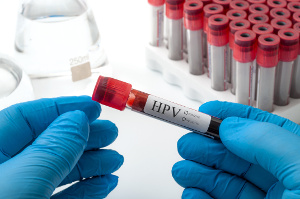 The majority of sexually active people contract HPV (human papilloma virus), of which there are several types. Normally, the infection goes away by itself but in some cases it becomes chronic. This increases the risk of serious cell changes in the cervix which, in worst case, can result in cervical cancer. An American study has found that having adequate levels of five different antioxidants – albumin plus vitamins A, B2, E, and folic acid – may lower papilloma virus infections that are linked to cervical cancer.
The majority of sexually active people contract HPV (human papilloma virus), of which there are several types. Normally, the infection goes away by itself but in some cases it becomes chronic. This increases the risk of serious cell changes in the cervix which, in worst case, can result in cervical cancer. An American study has found that having adequate levels of five different antioxidants – albumin plus vitamins A, B2, E, and folic acid – may lower papilloma virus infections that are linked to cervical cancer.
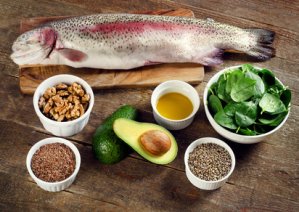 If you consume too much red meat it may increase your risk of colon cancer, but is there meat with the opposite effect? According to a new and groundbreaking study, eating salmon or other good sources of omega-3 fatty acids appears to help prevent this rather common cancer form and possibly even other cancers, as well. Just make sure not to get too much omega-6, especially from margarine and other plant oils, as it is vital to have the correct balance between the two types of fatty acids.
If you consume too much red meat it may increase your risk of colon cancer, but is there meat with the opposite effect? According to a new and groundbreaking study, eating salmon or other good sources of omega-3 fatty acids appears to help prevent this rather common cancer form and possibly even other cancers, as well. Just make sure not to get too much omega-6, especially from margarine and other plant oils, as it is vital to have the correct balance between the two types of fatty acids.
 Having sufficient vitamin D in your blood protects you against several cancer forms, according to a new review article that is published in Seminars in Cancer Biology. The summer sun is our primary source of the vitamin, but we can only store a limited amount in the liver for the winter period. The problem is made worse by the fact that we spend too much time indoors, and ageing even increases the risk of chronic vitamin D deficiency. The question is how much vitamin D do we need to protect us against cancer?
Having sufficient vitamin D in your blood protects you against several cancer forms, according to a new review article that is published in Seminars in Cancer Biology. The summer sun is our primary source of the vitamin, but we can only store a limited amount in the liver for the winter period. The problem is made worse by the fact that we spend too much time indoors, and ageing even increases the risk of chronic vitamin D deficiency. The question is how much vitamin D do we need to protect us against cancer?
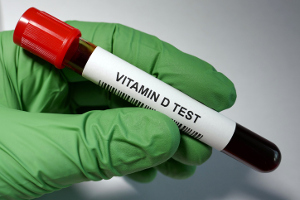 The interplay between vitamin D, magnesium, and calcium is vital for bone health and a number of other things, including cancer prevention. According to a new study that is published in American Journal of Clinical Nutrition, high blood levels of vitamin D and magnesium may lower colon cancer patients’ risk of dying of their disease. However, the current recommendations for vitamin D are not enough to reach optimal blood levels of the nutrient. Moreover, it is of vital importance that magnesium is properly balanced with calcium.
The interplay between vitamin D, magnesium, and calcium is vital for bone health and a number of other things, including cancer prevention. According to a new study that is published in American Journal of Clinical Nutrition, high blood levels of vitamin D and magnesium may lower colon cancer patients’ risk of dying of their disease. However, the current recommendations for vitamin D are not enough to reach optimal blood levels of the nutrient. Moreover, it is of vital importance that magnesium is properly balanced with calcium.
 For decades, science has had its focus on vitamin D in terms of cancer prevention. A new study shows that this applies particularly to women older than 55 years. It may be because cancer often takes many years to develop and because our ability to utilize the vitamin decreases as we grow older.
For decades, science has had its focus on vitamin D in terms of cancer prevention. A new study shows that this applies particularly to women older than 55 years. It may be because cancer often takes many years to develop and because our ability to utilize the vitamin decreases as we grow older.
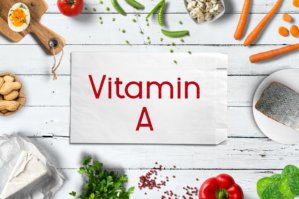 Those with a higher dietary intake of vitamin A than what is officially recommended are 17 percent less likely to develop the second-most common skin cancer compared with those who get limited quantities of the nutrient, according to a study from Brown University in the USA. Beware that vitamin A is found in different forms in various foods and that one of these forms (retinol) can be overdosed.
Those with a higher dietary intake of vitamin A than what is officially recommended are 17 percent less likely to develop the second-most common skin cancer compared with those who get limited quantities of the nutrient, according to a study from Brown University in the USA. Beware that vitamin A is found in different forms in various foods and that one of these forms (retinol) can be overdosed.
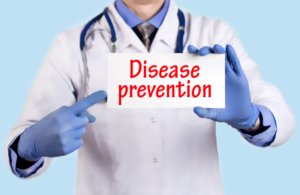 Scientists have discussed for quite some time to what extent vitamin D or omega-3 fatty acids from fish oil are able to lower the risk of a heart attack, stroke, and cancer. Although quite a lot of studies have been conducted in this area, there still is no large-scale clinical population study that includes different races. However, an American study has shown that fish oil supplements lower your risk of a heart attack, and large quantities of vitamin D have a long-term preventative effect on different cancer forms. The effect of these two different supplements is also affected by a person’s race.
Scientists have discussed for quite some time to what extent vitamin D or omega-3 fatty acids from fish oil are able to lower the risk of a heart attack, stroke, and cancer. Although quite a lot of studies have been conducted in this area, there still is no large-scale clinical population study that includes different races. However, an American study has shown that fish oil supplements lower your risk of a heart attack, and large quantities of vitamin D have a long-term preventative effect on different cancer forms. The effect of these two different supplements is also affected by a person’s race.
- with links to cancer, Parkinson’s disease, and other neurological disorders
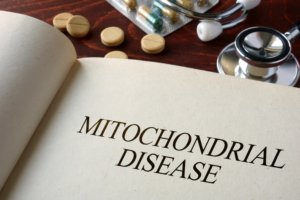 The mitochondria are the powerhouses of our cells that churn out energy in a process that involves oxygen, Q10, selenium, and other nutrients. Around 100 years ago, the German Nobel Prize winner, Professor Otto Warburg, demonstrated that even if cancer can be caused by a number of secondary factors, there is only one primary cause: alterations in the mitochondrial oxygen turnover. In his recent book, Tripping over the Truth, molecular biologist Travis Christoffersen describes how contemporary scientists confirm Warburg’s theories and says that we need to look at prevention and cancer treatment from an entirely different angle. Other studies show that Parkinson’s disease, migraine, senility, chronic fatigue, fibromyalgia, epilepsy, and other neurological disorders may be rooted in defects of the mitochondria that have many other functions besides delivering energy. It is therefore vital to take care of the mitochondria throughout life. You can read more about the ketogenic diet that optimizes mitochondrial energy turnover in different mitochondrial diseases.
The mitochondria are the powerhouses of our cells that churn out energy in a process that involves oxygen, Q10, selenium, and other nutrients. Around 100 years ago, the German Nobel Prize winner, Professor Otto Warburg, demonstrated that even if cancer can be caused by a number of secondary factors, there is only one primary cause: alterations in the mitochondrial oxygen turnover. In his recent book, Tripping over the Truth, molecular biologist Travis Christoffersen describes how contemporary scientists confirm Warburg’s theories and says that we need to look at prevention and cancer treatment from an entirely different angle. Other studies show that Parkinson’s disease, migraine, senility, chronic fatigue, fibromyalgia, epilepsy, and other neurological disorders may be rooted in defects of the mitochondria that have many other functions besides delivering energy. It is therefore vital to take care of the mitochondria throughout life. You can read more about the ketogenic diet that optimizes mitochondrial energy turnover in different mitochondrial diseases.
 Iodine's ability to protect against breast cancer has been demonstrated in animal studies. Furthermore, epidemiological studies suggest that consuming more dietary iodine lowers the risk of the dreaded disease, which represents 25% of all cancers in women.
Iodine's ability to protect against breast cancer has been demonstrated in animal studies. Furthermore, epidemiological studies suggest that consuming more dietary iodine lowers the risk of the dreaded disease, which represents 25% of all cancers in women.
 Selenium supports a host of different metabolic processes and serves as an antioxidant that protects our cells. According to recent studies, selenium also has anti-ageing properties that protect us against cardiovascular disease, cancer, dementia, and other age-related diseases. According to a review article published in Medical News Today, selenium also helps against impaired immunity and counteracts chronic inflammation, which is typically seen in connection with ageing processes. A Swedish study of healthy seniors has even showed that supplementation with selenium and Q10 has a positive effect on heart function, quality of life, and life expectancy.
Selenium supports a host of different metabolic processes and serves as an antioxidant that protects our cells. According to recent studies, selenium also has anti-ageing properties that protect us against cardiovascular disease, cancer, dementia, and other age-related diseases. According to a review article published in Medical News Today, selenium also helps against impaired immunity and counteracts chronic inflammation, which is typically seen in connection with ageing processes. A Swedish study of healthy seniors has even showed that supplementation with selenium and Q10 has a positive effect on heart function, quality of life, and life expectancy.
 Levels of magnesium in the blood are determining for the immune system’s ability to attack pathogens and cancer cells, according to a new study from the University of Basel and the University Hospital Basel. The scientists have discovered that the T cells of the immune system need magnesium in order to carry out proper attacks. According to the scientists, these results are extremely important because magnesium has a potential role in new immunotherapies targeted at cancer patients. It is generally important to get plenty of magnesium because this nutrient is vital for the body’s calcium distribution and for supporting hundreds of enzyme processes.
Levels of magnesium in the blood are determining for the immune system’s ability to attack pathogens and cancer cells, according to a new study from the University of Basel and the University Hospital Basel. The scientists have discovered that the T cells of the immune system need magnesium in order to carry out proper attacks. According to the scientists, these results are extremely important because magnesium has a potential role in new immunotherapies targeted at cancer patients. It is generally important to get plenty of magnesium because this nutrient is vital for the body’s calcium distribution and for supporting hundreds of enzyme processes.
 Magnesium is required for a well-functioning immune defense and for controlling inflammatory processes that are vital to our health. Magnesium also appears to protect against COVID-19 and other infections and the development of cancer, according to a review article published in Journal of Health, Population, and Nutrition. Our modern, refined diet, stress, ageing, stimulant abuse, and different types of medicine also contribute to the widespread problems with magnesium deficiency.
Magnesium is required for a well-functioning immune defense and for controlling inflammatory processes that are vital to our health. Magnesium also appears to protect against COVID-19 and other infections and the development of cancer, according to a review article published in Journal of Health, Population, and Nutrition. Our modern, refined diet, stress, ageing, stimulant abuse, and different types of medicine also contribute to the widespread problems with magnesium deficiency.
 Cancer researchers from the University of Iowa in the United States have finally clarified how extremely high doses of vitamin C given as infusions are able to kill cancer cells. It turns out that the low levels of the enzyme, catalase, in cancer cells make them vulnerable to vitamin C’s ability to generate free radicals. That way, vitamin C works like a type of chemotherapy, while, at the same time, stimulating normal activity in healthy cells. We are dealing with a treatment that is virtually devoid of side effects.
Cancer researchers from the University of Iowa in the United States have finally clarified how extremely high doses of vitamin C given as infusions are able to kill cancer cells. It turns out that the low levels of the enzyme, catalase, in cancer cells make them vulnerable to vitamin C’s ability to generate free radicals. That way, vitamin C works like a type of chemotherapy, while, at the same time, stimulating normal activity in healthy cells. We are dealing with a treatment that is virtually devoid of side effects.
 Breast cancer is one of the most widespread cancer forms, with 80% of cases being classified as estrogen receptor-positive. The risk of this type of breast cancer increases when you receive hormone therapy with estrogen (estradiol). The risk is also increased by hormone-disrupting substances in the environment. However, a new study shows that melatonin is able to inhibit a gene that influences the estrogen receptors in breast cancer cells. Melatonin is primarily known for its role as a sleep hormone, but an increasing amount of research shows cancer-protective potential. It is therefore essential to make enough melatonin yourself or to compensate for deficiencies by taking melatonin supplements.
Breast cancer is one of the most widespread cancer forms, with 80% of cases being classified as estrogen receptor-positive. The risk of this type of breast cancer increases when you receive hormone therapy with estrogen (estradiol). The risk is also increased by hormone-disrupting substances in the environment. However, a new study shows that melatonin is able to inhibit a gene that influences the estrogen receptors in breast cancer cells. Melatonin is primarily known for its role as a sleep hormone, but an increasing amount of research shows cancer-protective potential. It is therefore essential to make enough melatonin yourself or to compensate for deficiencies by taking melatonin supplements.
 Insomnia is common among cancer patients. Sleep medicine is associated with serious side effects, but research shows that the natural hormone, melatonin, may help improve the sleep quality of cancer patients in several different ways. Melatonin even has cancer-inhibiting mechanisms that deserve a closer look in terms of prevention and treatment.
Insomnia is common among cancer patients. Sleep medicine is associated with serious side effects, but research shows that the natural hormone, melatonin, may help improve the sleep quality of cancer patients in several different ways. Melatonin even has cancer-inhibiting mechanisms that deserve a closer look in terms of prevention and treatment.
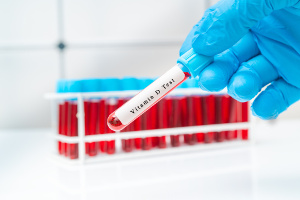 Vitamin D controls a host of different biochemical processes that are of importance to our health. Moderate vitamin D deficiency is rather common, and severe deficiency is one of the reasons why chronically ill cancer patients are put in intensive care and die within a year. Cancer patients who have been in intensive care can actually benefit from takin vitamin D supplements, according to an Austrian study that is published in Nutrients. The study supports earlier research that demonstrates different anti-cancer mechanisms in vitamin D.
Vitamin D controls a host of different biochemical processes that are of importance to our health. Moderate vitamin D deficiency is rather common, and severe deficiency is one of the reasons why chronically ill cancer patients are put in intensive care and die within a year. Cancer patients who have been in intensive care can actually benefit from takin vitamin D supplements, according to an Austrian study that is published in Nutrients. The study supports earlier research that demonstrates different anti-cancer mechanisms in vitamin D.
- but specific nutrients protect you
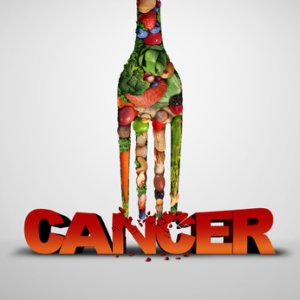 People, who eat nutrient-depleted diets, have an increased risk of contracting cancer, according to a French study that is published in PLoS Medicine. The scientists therefore recommend labeling food to help consumers make healthier choices. In the Nordic countries, we already have the “Keyhole label” on certain healthy food items, but even if you follow the official dietary guidelines, it may be difficult to get enough vitamin D and selenium, both of which are nutrients with several anti-cancer mechanisms.
People, who eat nutrient-depleted diets, have an increased risk of contracting cancer, according to a French study that is published in PLoS Medicine. The scientists therefore recommend labeling food to help consumers make healthier choices. In the Nordic countries, we already have the “Keyhole label” on certain healthy food items, but even if you follow the official dietary guidelines, it may be difficult to get enough vitamin D and selenium, both of which are nutrients with several anti-cancer mechanisms.
 Omega-3 fatty acids are known to positively support chemotherapy by maintaining body weight and muscle mass. According to a new study that is published in the esteemed science journal, Nutrition, omega-3 supplements can even reduce different side effects of chemotherapy.
Omega-3 fatty acids are known to positively support chemotherapy by maintaining body weight and muscle mass. According to a new study that is published in the esteemed science journal, Nutrition, omega-3 supplements can even reduce different side effects of chemotherapy.
 Ovarian cancer is one of the deadliest cancer forms because it metastasizes in a very special way. It appears, however, that vitamin D is able to counteract one of the mechanisms through which this cancer spreads, according to a new Japanese study that is published in Matrix Biology. It is a problem that vitamin D deficiencies are so common because the vitamin supports several anti-cancer mechanisms.
Ovarian cancer is one of the deadliest cancer forms because it metastasizes in a very special way. It appears, however, that vitamin D is able to counteract one of the mechanisms through which this cancer spreads, according to a new Japanese study that is published in Matrix Biology. It is a problem that vitamin D deficiencies are so common because the vitamin supports several anti-cancer mechanisms.
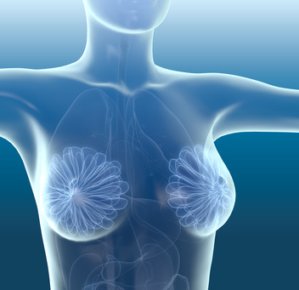 One in nine Danish women gets breast cancer, and the situation is not improving, on the contrary. One of the reasons why breast cancer is so widespread is that so many women lack vitamin D, and it looks as if the official recommendations for this nutrient are too low. A new American study has shown that those with higher amounts of vitamin D in the blood have a lower risk of the dreaded disease. The question is how much vitamin D do we need for optimal disease prevention, and what role does the nutrient play for those who have already been diagnosed with breast cancer?
One in nine Danish women gets breast cancer, and the situation is not improving, on the contrary. One of the reasons why breast cancer is so widespread is that so many women lack vitamin D, and it looks as if the official recommendations for this nutrient are too low. A new American study has shown that those with higher amounts of vitamin D in the blood have a lower risk of the dreaded disease. The question is how much vitamin D do we need for optimal disease prevention, and what role does the nutrient play for those who have already been diagnosed with breast cancer?
 Both diet and lifestyle affect your risk of developing liver cancer. According to a large population study published in Frontiers in Nutrition, regular intake of fish oil lowers your risk of contracting the disease. In fact, it seems that fish oil has a number of different cancer-preventing mechanisms that even reduce the risk of other types of cancer.
Both diet and lifestyle affect your risk of developing liver cancer. According to a large population study published in Frontiers in Nutrition, regular intake of fish oil lowers your risk of contracting the disease. In fact, it seems that fish oil has a number of different cancer-preventing mechanisms that even reduce the risk of other types of cancer.
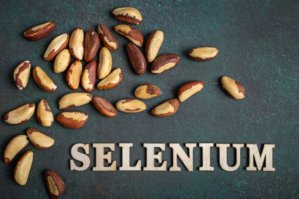 Lack of selenium, an essential trace element, may cause thyroid disorders, cardiovascular disease, virus infections, AIDS, infertility, neurological disturbances, and cancer. An estimated one billion people worldwide are selenium-deficient. This is mainly a result of nutrient-depleted soil, which is a real problem in places like Europe. For decades, scientists have been warning about this problem, and a lot suggests that we need more than the officially recommended intake to protect ourselves effectively against disease, according to a review article published in StatPearls.
Lack of selenium, an essential trace element, may cause thyroid disorders, cardiovascular disease, virus infections, AIDS, infertility, neurological disturbances, and cancer. An estimated one billion people worldwide are selenium-deficient. This is mainly a result of nutrient-depleted soil, which is a real problem in places like Europe. For decades, scientists have been warning about this problem, and a lot suggests that we need more than the officially recommended intake to protect ourselves effectively against disease, according to a review article published in StatPearls.
- and routine screening is not enough
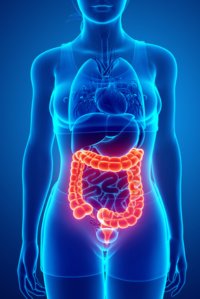 Cancer in the colon and rectum is rather common. One in 20 Danes gets colon cancer at some point in life. Since 2014, the Danish Health Authority has recommended a screening program, offering middle-aged and older people a screening for colon cancer every other year. If the disease is discovered in its early stage, the chances of successful treatment increase. Supplementation with organic selenium yeast has been shown to lower the risk of colorectal cancer in the first place, and selenium even has a protective effect against other cancer forms, so the nutrient is an essential part of the prevention. The problem is that selenium deficiencies are so common as a result of our nutrient-depleted soil.
Cancer in the colon and rectum is rather common. One in 20 Danes gets colon cancer at some point in life. Since 2014, the Danish Health Authority has recommended a screening program, offering middle-aged and older people a screening for colon cancer every other year. If the disease is discovered in its early stage, the chances of successful treatment increase. Supplementation with organic selenium yeast has been shown to lower the risk of colorectal cancer in the first place, and selenium even has a protective effect against other cancer forms, so the nutrient is an essential part of the prevention. The problem is that selenium deficiencies are so common as a result of our nutrient-depleted soil.
 Cancer has become one of the leading causes of death, with rates going up every year. The diet plays a major role and there is a lot of focus on seleniumas an anti-cancer agent – both in the form of selenium-enriched functional foods and selenium supplements. Around one billion people worldwide are believed to lack selenium. According to a review article that is published in Foods, however, taking a daily supplement of 100-200 micrograms of selenium yeast can prevent deficiency and reduce some of the most common cancers by fifty percent.
Cancer has become one of the leading causes of death, with rates going up every year. The diet plays a major role and there is a lot of focus on seleniumas an anti-cancer agent – both in the form of selenium-enriched functional foods and selenium supplements. Around one billion people worldwide are believed to lack selenium. According to a review article that is published in Foods, however, taking a daily supplement of 100-200 micrograms of selenium yeast can prevent deficiency and reduce some of the most common cancers by fifty percent.
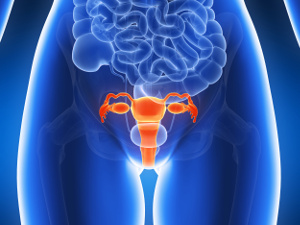 Seleniumis an essential trace element that affects the rate and development of several cancer types, including cervical cancer that is one of the most common cancer forms. Cervical cancer is often treated with a combination of radiation and chemotherapy and the side effects are known to affect the bone marrow and the formation of blood platelets and blood cells. However, supplementation with selenium yeast appears to counteract these adverse effects without interfering with the treatment, according to a study that is published in Frontiers in Nutrition.
Seleniumis an essential trace element that affects the rate and development of several cancer types, including cervical cancer that is one of the most common cancer forms. Cervical cancer is often treated with a combination of radiation and chemotherapy and the side effects are known to affect the bone marrow and the formation of blood platelets and blood cells. However, supplementation with selenium yeast appears to counteract these adverse effects without interfering with the treatment, according to a study that is published in Frontiers in Nutrition.
 Selenium supports a variety of different selenoproteins and antioxidants that are important for our immune defense, circulatory system, cancer protection, metabolism, gut flora, fertility, nervous system, and general health. This is described in two meta-analyses that are published in Frontiers in Nutrition. The authors mention that there is widespread selenium deficiency in large parts of the world, Europe included, and that this is a public health problem. The big question is how much selenium we need to effectively prevent and treat many chronic illnesses.
Selenium supports a variety of different selenoproteins and antioxidants that are important for our immune defense, circulatory system, cancer protection, metabolism, gut flora, fertility, nervous system, and general health. This is described in two meta-analyses that are published in Frontiers in Nutrition. The authors mention that there is widespread selenium deficiency in large parts of the world, Europe included, and that this is a public health problem. The big question is how much selenium we need to effectively prevent and treat many chronic illnesses.
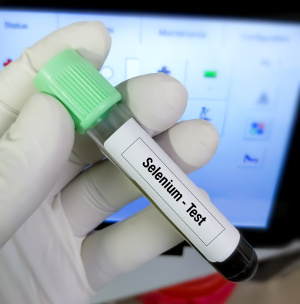 Over the past decades, numerous studies have linked low selenium levels in the blood to cardiovascular disease, cancer, increased risk of infection, thyroid disorders, and several other diseases. Due to the widespread problems with selenium deficiency, supplementation with this nutrient is of potential value to our general health. In a review article that is published in Oxidative Medicine and Cellular Longevity, the authors look at selenium’s role in connection with a host of different diseases and metabolic disorders.
Over the past decades, numerous studies have linked low selenium levels in the blood to cardiovascular disease, cancer, increased risk of infection, thyroid disorders, and several other diseases. Due to the widespread problems with selenium deficiency, supplementation with this nutrient is of potential value to our general health. In a review article that is published in Oxidative Medicine and Cellular Longevity, the authors look at selenium’s role in connection with a host of different diseases and metabolic disorders.
 Glioblastoma is a the most common type of brain tumor and is very aggressive. Existing therapies are not all that effective and most people die within a few years after being diagnosed with the disease. It is essential to have more focus on prevention, and diet plays a major role. According to a Chinese population study, vitamins B1, B2, B3, and B9 (folic acid) are associated with a reduced risk of developing glioblastoma. The scientists mention the different B vitamins and their role in brain health and cancer prevention and stress the importance of knowing about the factors that inhibit the body’s uptake and utilization of these vitamins.
Glioblastoma is a the most common type of brain tumor and is very aggressive. Existing therapies are not all that effective and most people die within a few years after being diagnosed with the disease. It is essential to have more focus on prevention, and diet plays a major role. According to a Chinese population study, vitamins B1, B2, B3, and B9 (folic acid) are associated with a reduced risk of developing glioblastoma. The scientists mention the different B vitamins and their role in brain health and cancer prevention and stress the importance of knowing about the factors that inhibit the body’s uptake and utilization of these vitamins.
 Melatonin is primarily for its role as a sleep hormone. However, it also increases the effect of tamoxifen and reduces side effects in the aftercare of breast cancer. Science has known about melatonin's cancer preventative properties for quite some time, and by embedding the hormone in small "lipid bubbles", tamoxifen is able to destroy even more breast cancer cells, according to Iranian research.
Melatonin is primarily for its role as a sleep hormone. However, it also increases the effect of tamoxifen and reduces side effects in the aftercare of breast cancer. Science has known about melatonin's cancer preventative properties for quite some time, and by embedding the hormone in small "lipid bubbles", tamoxifen is able to destroy even more breast cancer cells, according to Iranian research.
 Considerably fewer cases of melanoma are found among people who take vitamin D supplements regularly compared with those who don’t. This was demonstrated in a new Finnish study that is published in Melanoma Research. The study supports earlier research that shows that lack of vitamin D doubles your risk of dying of melanoma.
Considerably fewer cases of melanoma are found among people who take vitamin D supplements regularly compared with those who don’t. This was demonstrated in a new Finnish study that is published in Melanoma Research. The study supports earlier research that shows that lack of vitamin D doubles your risk of dying of melanoma.
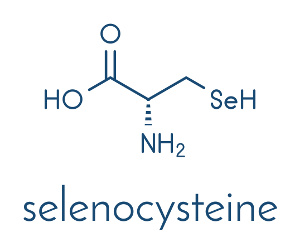 Selenium is a trace element that supports well over 25 different selenoproteins, which are important for our energy turnover, blood sugar balance, metabolism, cell protection, and a host of other essential functions. A group of scientists from Rutgers University in New Jersey, USA, has just uncovered the mechanisms involved in getting selenium into the “engine room” of the cells, from where it is metabolized into the different selenoproteins. According to the scientists, this new insight into the metabolism of selenium may lead to new therapies that can treat a variety of diseases such as diabetes, metabolic disorders, and cancer.
Selenium is a trace element that supports well over 25 different selenoproteins, which are important for our energy turnover, blood sugar balance, metabolism, cell protection, and a host of other essential functions. A group of scientists from Rutgers University in New Jersey, USA, has just uncovered the mechanisms involved in getting selenium into the “engine room” of the cells, from where it is metabolized into the different selenoproteins. According to the scientists, this new insight into the metabolism of selenium may lead to new therapies that can treat a variety of diseases such as diabetes, metabolic disorders, and cancer.
- and could potentially be used for prevention and treatment
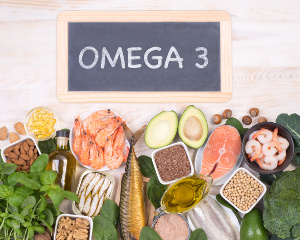 It is commonly known that omega-3 fatty acids are involved in a number of essential functions in the body. One of the fatty acids, DHA, may even have a toxic effect on cancer cells because they are unable to store the fatty acid correctly. In a new Belgian study published in Cell Metabolism, scientists explain the exact mechanisms. They also suggest that omega-3 supplements may be useful in cancer therapy, especially because the average omega-3 intake from the diet is far too limited and because there is a risk of becoming resistant to medical cancer drugs. The new study puts omega-3 fatty acids and their anti-cancer effects in a whole new light.
It is commonly known that omega-3 fatty acids are involved in a number of essential functions in the body. One of the fatty acids, DHA, may even have a toxic effect on cancer cells because they are unable to store the fatty acid correctly. In a new Belgian study published in Cell Metabolism, scientists explain the exact mechanisms. They also suggest that omega-3 supplements may be useful in cancer therapy, especially because the average omega-3 intake from the diet is far too limited and because there is a risk of becoming resistant to medical cancer drugs. The new study puts omega-3 fatty acids and their anti-cancer effects in a whole new light.
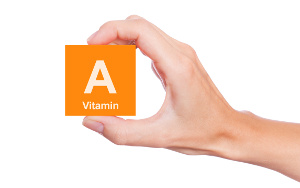 In the case of wounds or skin lesions, an active form of vitamin A regulates how stem cells initiate healing processes and produce new skin. This was demonstrated in a study from Rockefeller University that is published in the journal Science. In the future, researchers plan to look closer at how active vitamin A can be used to regulate stem cells as a way of preventing and treating skin cancer.
In the case of wounds or skin lesions, an active form of vitamin A regulates how stem cells initiate healing processes and produce new skin. This was demonstrated in a study from Rockefeller University that is published in the journal Science. In the future, researchers plan to look closer at how active vitamin A can be used to regulate stem cells as a way of preventing and treating skin cancer.
 Vitamin B3 deserves a lot more attention because of its key role in cellular energy metabolism, the brain and nervous system, our mental health, and our circulatory system. In the cellular powerhouses, we find the derivate form of B3 called NAD, which gives an energy boost. According to a study published in StatPearls, studies suggest that vitamin B3 lowers the risk of Alzheimer’s disease, Parkinson’s disease and other neurological disorders, rheumatoid arthritis, muscle atrophy, and various cancer forms. Many people have an increased need for the nutrient due to factors such as ageing, genetic variations, and poor utilization of the vitamin.
Vitamin B3 deserves a lot more attention because of its key role in cellular energy metabolism, the brain and nervous system, our mental health, and our circulatory system. In the cellular powerhouses, we find the derivate form of B3 called NAD, which gives an energy boost. According to a study published in StatPearls, studies suggest that vitamin B3 lowers the risk of Alzheimer’s disease, Parkinson’s disease and other neurological disorders, rheumatoid arthritis, muscle atrophy, and various cancer forms. Many people have an increased need for the nutrient due to factors such as ageing, genetic variations, and poor utilization of the vitamin.
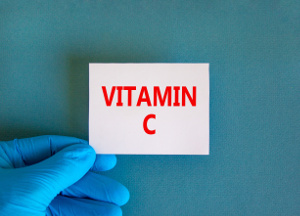 A type of cancer called chronic myeloid leukemia is characterized by an overproduction of white blood cells that can lead to symptoms like fatigue, infections, and other complications. Another characteristic feature of chronic myeloid leukemia is chronic inflammation that contributes to the disease progression. Vitamin C, however, appears to counteract the inflammation, according to a Brazilian in-vitro study that is published in Nutrients.
A type of cancer called chronic myeloid leukemia is characterized by an overproduction of white blood cells that can lead to symptoms like fatigue, infections, and other complications. Another characteristic feature of chronic myeloid leukemia is chronic inflammation that contributes to the disease progression. Vitamin C, however, appears to counteract the inflammation, according to a Brazilian in-vitro study that is published in Nutrients.
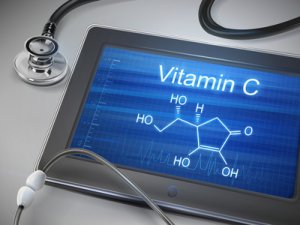 Three recent studies show that vitamin C may enable genes to kill uncontrolled stem cells that cause leukemia, thereby giving the nutrient a role in cancer prevention. However, it takes more than a few oranges or vitamin C in tablet form to obtain this therapeutic effect. It requires intravenously administered vitamin C in large quantities. These doses have been used for decades and are known as redox therapy. Here, vitamin C works by entirely different mechanisms and effectively kill off cancer cells.
Three recent studies show that vitamin C may enable genes to kill uncontrolled stem cells that cause leukemia, thereby giving the nutrient a role in cancer prevention. However, it takes more than a few oranges or vitamin C in tablet form to obtain this therapeutic effect. It requires intravenously administered vitamin C in large quantities. These doses have been used for decades and are known as redox therapy. Here, vitamin C works by entirely different mechanisms and effectively kill off cancer cells.
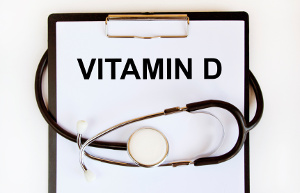 Danish scientists from Aalborg University have published a study of mice in which they demonstrate that vitamin D prevents cancer by affecting a particular kind of gut bacteria. A subsequent analysis of 1.5 million Danes shows a similar relation between low vitamin D levels in the blood and an increased risk of several cancer types. What is also worth mentioning is that the official vitamin D recommendations appear to be too low to be able optimize blood levels of the nutrient.
Danish scientists from Aalborg University have published a study of mice in which they demonstrate that vitamin D prevents cancer by affecting a particular kind of gut bacteria. A subsequent analysis of 1.5 million Danes shows a similar relation between low vitamin D levels in the blood and an increased risk of several cancer types. What is also worth mentioning is that the official vitamin D recommendations appear to be too low to be able optimize blood levels of the nutrient.
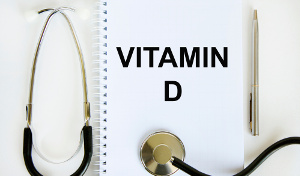 Millions of people worldwide drink arsenic-polluted water regularly. Arsenic is a toxin that is known to cause different types of cancer, including skin cancer. According to a new study published in American Journal of Cancer Research, it looks as if the active form of vitamin D, calcitriol, can prevent the onset of arsenic-induced skin cancer in a special type of skin cells. Calcitriol also appears to be able to prevent other types of cancer caused by arsenic.
Millions of people worldwide drink arsenic-polluted water regularly. Arsenic is a toxin that is known to cause different types of cancer, including skin cancer. According to a new study published in American Journal of Cancer Research, it looks as if the active form of vitamin D, calcitriol, can prevent the onset of arsenic-induced skin cancer in a special type of skin cells. Calcitriol also appears to be able to prevent other types of cancer caused by arsenic.
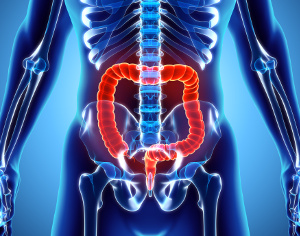 Colorectal cancer is one of the most common cancer forms in Denmark, which is why prevention is so important. According to a new American study that is published in Gastroenterology, increased intake of vitamin Dappears to protect against bowel cancer, especially in people younger than 50 years. It even looks as if vitamin D may prevent intestinal polyps that can turn into cancer in some cases. The scientists say that higher intake of vitamin D may be relevant for prevention and may also serve as an inexpensive supplement to screening tests that are merely used for early diagnosis.
Colorectal cancer is one of the most common cancer forms in Denmark, which is why prevention is so important. According to a new American study that is published in Gastroenterology, increased intake of vitamin Dappears to protect against bowel cancer, especially in people younger than 50 years. It even looks as if vitamin D may prevent intestinal polyps that can turn into cancer in some cases. The scientists say that higher intake of vitamin D may be relevant for prevention and may also serve as an inexpensive supplement to screening tests that are merely used for early diagnosis.
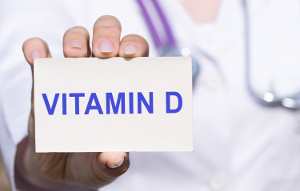 Photodynamic therapy is a kind of light therapy that is used to treat skin cancer, psoriasis, and other skin diseases. According to a review article published in Nutrients, vitamin D supplementation can improve the outcome of the treatment. In fact, vitamin D appears to have several positive effects on skin health. Taken in large doses, the vitamin can even repair skin damage caused by sunburns.
Photodynamic therapy is a kind of light therapy that is used to treat skin cancer, psoriasis, and other skin diseases. According to a review article published in Nutrients, vitamin D supplementation can improve the outcome of the treatment. In fact, vitamin D appears to have several positive effects on skin health. Taken in large doses, the vitamin can even repair skin damage caused by sunburns.
- and the nutrient also has anti-cancer properties
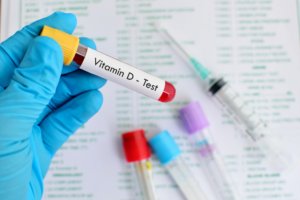 Cancer patients, who take high-dosed vitamin D supplements for at least three years may live longer, according to a study from Michigan State University, USA. It is not enough to treat cancer with surgery, chemotherapy and radiation. You also have to optimize the body’s vitamin D status. It is a problem that vitamin D deficiency is so common because it helps long-term prevention if you have adequate levels of the nutrient in your blood. The question is how much do we need, and is the sun sufficiently powerful to enable us to synthesize vitamin D in our skin during the winter period?
Cancer patients, who take high-dosed vitamin D supplements for at least three years may live longer, according to a study from Michigan State University, USA. It is not enough to treat cancer with surgery, chemotherapy and radiation. You also have to optimize the body’s vitamin D status. It is a problem that vitamin D deficiency is so common because it helps long-term prevention if you have adequate levels of the nutrient in your blood. The question is how much do we need, and is the sun sufficiently powerful to enable us to synthesize vitamin D in our skin during the winter period?
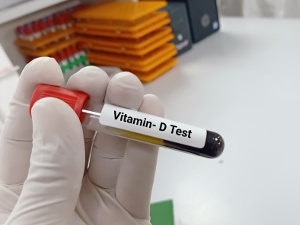 Cancer patients often have overwhelming pain that turns up as their disease progresses. The whole purpose with palliative care is to relieve the pain, and opioids such as morphine are often used for this purpose. However, according to a Swedish study published in the science journal Cancer, more and more terminal cancer patients who are given high-dosed supplements of vitamin Dhave less need for pain treatment and generally feel less tired. Vitamin D deficiencies are common among cancer patients and may contribute to a shorter life expectancy.
Cancer patients often have overwhelming pain that turns up as their disease progresses. The whole purpose with palliative care is to relieve the pain, and opioids such as morphine are often used for this purpose. However, according to a Swedish study published in the science journal Cancer, more and more terminal cancer patients who are given high-dosed supplements of vitamin Dhave less need for pain treatment and generally feel less tired. Vitamin D deficiencies are common among cancer patients and may contribute to a shorter life expectancy.
- plus large cuts in public healthcare
 Lack of vitamin D is rather common. It increases the risk of infections and a host of serious diseases. German cancer researchers have estimated that if all Germans from 50 years and older took a daily vitamin D supplement it would prevent 30,000 cancer-related deaths annually and gain over 300,000 years of life. In addition to that, it would lead to huge reductions in public healthcare. The health-related and financial benefits of optimizing the population’s vitamin D status fits in nicely with previous research and calculations from Denmark.
Lack of vitamin D is rather common. It increases the risk of infections and a host of serious diseases. German cancer researchers have estimated that if all Germans from 50 years and older took a daily vitamin D supplement it would prevent 30,000 cancer-related deaths annually and gain over 300,000 years of life. In addition to that, it would lead to huge reductions in public healthcare. The health-related and financial benefits of optimizing the population’s vitamin D status fits in nicely with previous research and calculations from Denmark.
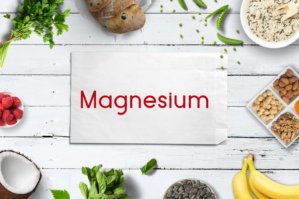 Epidemiological studies have led to different results when it comes to vitamin D and its ability to protect against cancer, infections, and various diseases. However, according to a new study published in Cancer Research, this is because magnesium is involved in the activation of vitamin D, on which all cells depend. It therefore does no good to take supplements of vitamin D, if you lack magnesium. And this is exactly the case with many people who eat unhealthy diets, are stressed, use medicine etc.
Epidemiological studies have led to different results when it comes to vitamin D and its ability to protect against cancer, infections, and various diseases. However, according to a new study published in Cancer Research, this is because magnesium is involved in the activation of vitamin D, on which all cells depend. It therefore does no good to take supplements of vitamin D, if you lack magnesium. And this is exactly the case with many people who eat unhealthy diets, are stressed, use medicine etc.
 Vitamin D plays a major role in our health. The main focus, however, is on vitamin D’s importance for bones, while many health professionals are totally unaware of the nutrient’s other essential functions. According to a review article published in Nutrients, half the global population has low vitamin D levels in the blood, which increases the risk of cardiovascular disease, hypertension, cancer, type 2 diabetes, Alzheimer’s disease, respiratory infections like COVID-19, and early death. The authors also mention that vitamin D science is often inadequate or misleading because studies focus on supplementation rather than looking at blood levels of 25(OH)D. Consequently, trials are often made with far too small vitamin D doses or with too a short a trial period. In either case, blood levels of vitamin D fail to reach their optimum. What is more, levels of 25(OH)D in the blood should ideally be above 75 nmol/L in order to protect against cardiovascular disease, cancer, and early death. Because this threshold level is higher than the official threshold levels, the scientists recommend high-dosed vitamin D levels as a way to reach an optimal nutrient status.
Vitamin D plays a major role in our health. The main focus, however, is on vitamin D’s importance for bones, while many health professionals are totally unaware of the nutrient’s other essential functions. According to a review article published in Nutrients, half the global population has low vitamin D levels in the blood, which increases the risk of cardiovascular disease, hypertension, cancer, type 2 diabetes, Alzheimer’s disease, respiratory infections like COVID-19, and early death. The authors also mention that vitamin D science is often inadequate or misleading because studies focus on supplementation rather than looking at blood levels of 25(OH)D. Consequently, trials are often made with far too small vitamin D doses or with too a short a trial period. In either case, blood levels of vitamin D fail to reach their optimum. What is more, levels of 25(OH)D in the blood should ideally be above 75 nmol/L in order to protect against cardiovascular disease, cancer, and early death. Because this threshold level is higher than the official threshold levels, the scientists recommend high-dosed vitamin D levels as a way to reach an optimal nutrient status.
 The summer sun is our primary source of vitamin D, and previous population studies have suggested that vitamin D may help prevent breast cancer from developing. Danish scientists have looked closer at this relation and found that women from 50 years of age and older who spend a lot of time outdoors – especially between 10 am and 3 pm – have a lower risk of breast cancer. This is important knowledge because it takes years for breast cancer to develop. Vitamin D appears to have a number of different anti-cancer mechanisms, which is why it is vital for us humans to get plenty of the nutrient throughout life.
The summer sun is our primary source of vitamin D, and previous population studies have suggested that vitamin D may help prevent breast cancer from developing. Danish scientists have looked closer at this relation and found that women from 50 years of age and older who spend a lot of time outdoors – especially between 10 am and 3 pm – have a lower risk of breast cancer. This is important knowledge because it takes years for breast cancer to develop. Vitamin D appears to have a number of different anti-cancer mechanisms, which is why it is vital for us humans to get plenty of the nutrient throughout life.
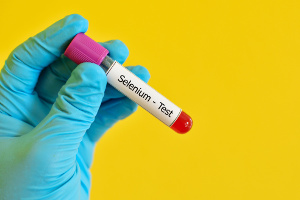 Newly diagnosed cancer patients often lack selenium. Not only does this contribute to the development of the disease, but it also worsens the prognosis. An estimated one billion people worldwide are selenium-deficient and there are many things that can explain it. High-doses selenium supplementation of cancer patients seems to have a positive effect on their health and quality of life during rehabilitation, and the best effect is seen when blood selenium levels remain high, according to a German study published in Nutrients.
Newly diagnosed cancer patients often lack selenium. Not only does this contribute to the development of the disease, but it also worsens the prognosis. An estimated one billion people worldwide are selenium-deficient and there are many things that can explain it. High-doses selenium supplementation of cancer patients seems to have a positive effect on their health and quality of life during rehabilitation, and the best effect is seen when blood selenium levels remain high, according to a German study published in Nutrients.
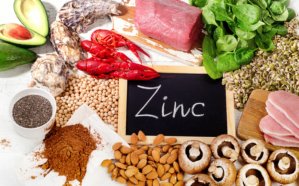 Our ability to absorb zinc is reduced with age, and many older people lack zinc, even though there is plenty of zinc in the diet they eat. The trace element is involved in over 1,000 enzyme processes and is also an important antioxidant that protects our cells. Even minor zinc deficiencies can speed up ageing processes and contribute to skin and hair problems, infections such as bladder infections, chronic inflammation, elevated blood pressure, cancer, and other diseases. People with unhealthy diets, vegetarians, vegans, and older people are at particularly vulnerable. Certain types of medicine that many seniors take can also increase the risk of a zinc deficiency.
Our ability to absorb zinc is reduced with age, and many older people lack zinc, even though there is plenty of zinc in the diet they eat. The trace element is involved in over 1,000 enzyme processes and is also an important antioxidant that protects our cells. Even minor zinc deficiencies can speed up ageing processes and contribute to skin and hair problems, infections such as bladder infections, chronic inflammation, elevated blood pressure, cancer, and other diseases. People with unhealthy diets, vegetarians, vegans, and older people are at particularly vulnerable. Certain types of medicine that many seniors take can also increase the risk of a zinc deficiency.
 Colon polyps are rather common, and there is a specific type of polyps that increases the risk of colon cancer, which is also a widespread problem. According to a new clinical study from the University of Leeds in England, a concentrated form of the omega-3 fatty acid, EPA, which is found in oily fish and fish oil supplements, helps reduce the number of colon polyps. The same is the case with aspirin. The two preparations work differently, however, depending on where in the colon the polyps are found, and aspirin may have long-term side effects. Earlier research has shown that supplements of selenium and antioxidants have a preventive effect, which appears to be even greater.
Colon polyps are rather common, and there is a specific type of polyps that increases the risk of colon cancer, which is also a widespread problem. According to a new clinical study from the University of Leeds in England, a concentrated form of the omega-3 fatty acid, EPA, which is found in oily fish and fish oil supplements, helps reduce the number of colon polyps. The same is the case with aspirin. The two preparations work differently, however, depending on where in the colon the polyps are found, and aspirin may have long-term side effects. Earlier research has shown that supplements of selenium and antioxidants have a preventive effect, which appears to be even greater.











 Even if you eat a healthy and balanced diet, it can be difficult to get enough
Even if you eat a healthy and balanced diet, it can be difficult to get enough  Swiss scientists have observed that if you take a type of
Swiss scientists have observed that if you take a type of 
 Earlier studies have shown that
Earlier studies have shown that  One in nine Danish women gets breast cancer. Diet and lifestyle play a major role, and now an American study shows that
One in nine Danish women gets breast cancer. Diet and lifestyle play a major role, and now an American study shows that  Pancreatic cancer remains one of the deadliest cancers even with improved therapies. Because many people are diagnosed too late and the prognoses are generally poor it is essential to focus a lot more on prevention for instance by striving to maintain normal weight and avoiding smoking. According to a new meta-analysis published in Nutrition Journal, it appears that large quantities of
Pancreatic cancer remains one of the deadliest cancers even with improved therapies. Because many people are diagnosed too late and the prognoses are generally poor it is essential to focus a lot more on prevention for instance by striving to maintain normal weight and avoiding smoking. According to a new meta-analysis published in Nutrition Journal, it appears that large quantities of  Melanoma is a type of malignant skin cancer that spreads rapidly. Being vitamin D-deficient doubles the risk of dying of the disease, according to a Spanish study that was presented at the European Academy of Dermatology and Venereology congress. It is commonly known that sunburns, which one should generally avoid, increase the risk of contracting skin cancer. But we must not forget that the summer sun is our main source of
Melanoma is a type of malignant skin cancer that spreads rapidly. Being vitamin D-deficient doubles the risk of dying of the disease, according to a Spanish study that was presented at the European Academy of Dermatology and Venereology congress. It is commonly known that sunburns, which one should generally avoid, increase the risk of contracting skin cancer. But we must not forget that the summer sun is our main source of  Breast cancer is very common in the Western world and modern society. The disease is thought to be associated with lifestyle factors and lack of essential nutrients. For instance, it has been known for a long time that lack of vitamin D increases the risk of breast cancer. According to a new study that is published in the science journal Endocrinology, there is also a link between lack of vitamin D and the development of metastases in the lungs. Previous research also shows that the widespread deficiency of selenium, iodine, omega-3 fatty acids, and melatonin can increase the risk of breast cancer but supplements can help prevent the disease and possibly be used as add-on therapy.
Breast cancer is very common in the Western world and modern society. The disease is thought to be associated with lifestyle factors and lack of essential nutrients. For instance, it has been known for a long time that lack of vitamin D increases the risk of breast cancer. According to a new study that is published in the science journal Endocrinology, there is also a link between lack of vitamin D and the development of metastases in the lungs. Previous research also shows that the widespread deficiency of selenium, iodine, omega-3 fatty acids, and melatonin can increase the risk of breast cancer but supplements can help prevent the disease and possibly be used as add-on therapy. Breast cancer is the leading cancer form among women. Even though treatments have gotten a lot better the disease still has a high death toll. A Swedish-German study shows that having low levels of
Breast cancer is the leading cancer form among women. Even though treatments have gotten a lot better the disease still has a high death toll. A Swedish-German study shows that having low levels of  Having higher blood levels of
Having higher blood levels of  New figures from the cancer database, Nordcan, reveal that Danish women hold the record in cancer prevalence, and both sexes still have the lowest cancer survival rate among the Nordic countries. Experts claim that this is linked to our lifestyle. However, cancer even occurs among people with healthy lifestyles, and international studies suggest that modern diets tend to lack optimal amounts of selenium, vitamin D and omega-3, all of which have cancer-preventive properties. Research also points to melatonin, also known as the sleep hormone.
New figures from the cancer database, Nordcan, reveal that Danish women hold the record in cancer prevalence, and both sexes still have the lowest cancer survival rate among the Nordic countries. Experts claim that this is linked to our lifestyle. However, cancer even occurs among people with healthy lifestyles, and international studies suggest that modern diets tend to lack optimal amounts of selenium, vitamin D and omega-3, all of which have cancer-preventive properties. Research also points to melatonin, also known as the sleep hormone. The number of seniors in the world is growing steadily which means a surge in problems like cardiovascular disease, cancer, respiratory illnesses, overweight, diabetes, rheumatism, dementia, and Alzheimer’s disease. These diseases that have a widespread impact on human lives and are a burden to society are often linked to chronic inflammation. A group of scientists therefore decided to look closer at studies that have found a positive effect of the omega-3 fatty acids EPA and DHA on cognitive functioning, maintenance of muscle mass, and prevention and treatment of a host of serious diseases that are related to ageing. It is vital to start supplementing early and to take the right doses, according to the new review article published in Nutrients.
The number of seniors in the world is growing steadily which means a surge in problems like cardiovascular disease, cancer, respiratory illnesses, overweight, diabetes, rheumatism, dementia, and Alzheimer’s disease. These diseases that have a widespread impact on human lives and are a burden to society are often linked to chronic inflammation. A group of scientists therefore decided to look closer at studies that have found a positive effect of the omega-3 fatty acids EPA and DHA on cognitive functioning, maintenance of muscle mass, and prevention and treatment of a host of serious diseases that are related to ageing. It is vital to start supplementing early and to take the right doses, according to the new review article published in Nutrients. The majority of sexually active people contract HPV (human papilloma virus), of which there are several types. Normally, the infection goes away by itself but in some cases it becomes chronic. This increases the risk of serious cell changes in the cervix which, in worst case, can result in cervical cancer. An American study has found that having adequate levels of five different antioxidants – albumin plus vitamins A, B2, E, and folic acid – may lower papilloma virus infections that are linked to cervical cancer.
The majority of sexually active people contract HPV (human papilloma virus), of which there are several types. Normally, the infection goes away by itself but in some cases it becomes chronic. This increases the risk of serious cell changes in the cervix which, in worst case, can result in cervical cancer. An American study has found that having adequate levels of five different antioxidants – albumin plus vitamins A, B2, E, and folic acid – may lower papilloma virus infections that are linked to cervical cancer. If you consume too much red meat it may increase your risk of colon cancer, but is there meat with the opposite effect? According to a new and groundbreaking study, eating salmon or other good sources of
If you consume too much red meat it may increase your risk of colon cancer, but is there meat with the opposite effect? According to a new and groundbreaking study, eating salmon or other good sources of  Having sufficient
Having sufficient  The interplay between
The interplay between  For decades, science has had its focus on
For decades, science has had its focus on  Those with a higher dietary intake of
Those with a higher dietary intake of  Scientists have discussed for quite some time to what extent
Scientists have discussed for quite some time to what extent  The mitochondria are the powerhouses of our cells that churn out energy in a process that involves oxygen, Q10, selenium, and other nutrients. Around 100 years ago, the German Nobel Prize winner, Professor Otto Warburg, demonstrated that even if cancer can be caused by a number of secondary factors, there is only one primary cause: alterations in the mitochondrial oxygen turnover. In his recent book, Tripping over the Truth, molecular biologist Travis Christoffersen describes how contemporary scientists confirm Warburg’s theories and says that we need to look at prevention and cancer treatment from an entirely different angle. Other studies show that Parkinson’s disease, migraine, senility, chronic fatigue, fibromyalgia, epilepsy, and other neurological disorders may be rooted in defects of the mitochondria that have many other functions besides delivering energy. It is therefore vital to take care of the mitochondria throughout life. You can read more about the ketogenic diet that optimizes mitochondrial energy turnover in different mitochondrial diseases.
The mitochondria are the powerhouses of our cells that churn out energy in a process that involves oxygen, Q10, selenium, and other nutrients. Around 100 years ago, the German Nobel Prize winner, Professor Otto Warburg, demonstrated that even if cancer can be caused by a number of secondary factors, there is only one primary cause: alterations in the mitochondrial oxygen turnover. In his recent book, Tripping over the Truth, molecular biologist Travis Christoffersen describes how contemporary scientists confirm Warburg’s theories and says that we need to look at prevention and cancer treatment from an entirely different angle. Other studies show that Parkinson’s disease, migraine, senility, chronic fatigue, fibromyalgia, epilepsy, and other neurological disorders may be rooted in defects of the mitochondria that have many other functions besides delivering energy. It is therefore vital to take care of the mitochondria throughout life. You can read more about the ketogenic diet that optimizes mitochondrial energy turnover in different mitochondrial diseases. Iodine's ability to protect against breast cancer has been demonstrated in animal studies. Furthermore, epidemiological studies suggest that consuming more dietary iodine lowers the risk of the dreaded disease, which represents 25% of all cancers in women.
Iodine's ability to protect against breast cancer has been demonstrated in animal studies. Furthermore, epidemiological studies suggest that consuming more dietary iodine lowers the risk of the dreaded disease, which represents 25% of all cancers in women.
 Levels of
Levels of 
 Cancer researchers from the University of Iowa in the United States have finally clarified how extremely high doses of
Cancer researchers from the University of Iowa in the United States have finally clarified how extremely high doses of  Breast cancer is one of the most widespread cancer forms, with 80% of cases being classified as estrogen receptor-positive. The risk of this type of breast cancer increases when you receive hormone therapy with estrogen (estradiol). The risk is also increased by hormone-disrupting substances in the environment. However, a new study shows that melatonin is able to inhibit a gene that influences the estrogen receptors in breast cancer cells. Melatonin is primarily known for its role as a sleep hormone, but an increasing amount of research shows cancer-protective potential. It is therefore essential to make enough melatonin yourself or to compensate for deficiencies by taking melatonin supplements
Breast cancer is one of the most widespread cancer forms, with 80% of cases being classified as estrogen receptor-positive. The risk of this type of breast cancer increases when you receive hormone therapy with estrogen (estradiol). The risk is also increased by hormone-disrupting substances in the environment. However, a new study shows that melatonin is able to inhibit a gene that influences the estrogen receptors in breast cancer cells. Melatonin is primarily known for its role as a sleep hormone, but an increasing amount of research shows cancer-protective potential. It is therefore essential to make enough melatonin yourself or to compensate for deficiencies by taking melatonin supplements Insomnia is common among cancer patients. Sleep medicine is associated with serious side effects, but research shows that the natural hormone, melatonin, may help improve the sleep quality of cancer patients in several different ways. Melatonin even has cancer-inhibiting mechanisms that deserve a closer look in terms of prevention and treatment.
Insomnia is common among cancer patients. Sleep medicine is associated with serious side effects, but research shows that the natural hormone, melatonin, may help improve the sleep quality of cancer patients in several different ways. Melatonin even has cancer-inhibiting mechanisms that deserve a closer look in terms of prevention and treatment.
 People, who eat nutrient-depleted diets, have an increased risk of contracting cancer, according to a French study that is published in PLoS Medicine. The scientists therefore recommend labeling food to help consumers make healthier choices. In the Nordic countries, we already have the “Keyhole label” on certain healthy food items, but even if you follow the official dietary guidelines, it may be difficult to get enough vitamin D and selenium, both of which are nutrients with several anti-cancer mechanisms.
People, who eat nutrient-depleted diets, have an increased risk of contracting cancer, according to a French study that is published in PLoS Medicine. The scientists therefore recommend labeling food to help consumers make healthier choices. In the Nordic countries, we already have the “Keyhole label” on certain healthy food items, but even if you follow the official dietary guidelines, it may be difficult to get enough vitamin D and selenium, both of which are nutrients with several anti-cancer mechanisms.
 Ovarian cancer is one of the deadliest cancer forms because it metastasizes in a very special way. It appears, however, that
Ovarian cancer is one of the deadliest cancer forms because it metastasizes in a very special way. It appears, however, that  One in nine Danish women gets breast cancer, and the situation is not improving, on the contrary. One of the reasons why breast cancer is so widespread is that so many women lack
One in nine Danish women gets breast cancer, and the situation is not improving, on the contrary. One of the reasons why breast cancer is so widespread is that so many women lack  Both diet and lifestyle affect your risk of developing liver cancer. According to a large population study published in Frontiers in Nutrition, regular intake of fish oil lowers your risk of contracting the disease. In fact, it seems that fish oil has a number of different cancer-preventing mechanisms that even reduce the risk of other types of cancer.
Both diet and lifestyle affect your risk of developing liver cancer. According to a large population study published in Frontiers in Nutrition, regular intake of fish oil lowers your risk of contracting the disease. In fact, it seems that fish oil has a number of different cancer-preventing mechanisms that even reduce the risk of other types of cancer. Lack of
Lack of  Cancer in the colon and rectum is rather common. One in 20 Danes gets colon cancer at some point in life. Since 2014, the Danish Health Authority has recommended a screening program, offering middle-aged and older people a screening for colon cancer every other year. If the disease is discovered in its early stage, the chances of successful treatment increase. Supplementation with organic selenium yeast has been shown to lower the risk of colorectal cancer in the first place, and selenium even has a protective effect against other cancer forms, so the nutrient is an essential part of the prevention. The problem is that selenium deficiencies are so common as a result of our nutrient-depleted soil.
Cancer in the colon and rectum is rather common. One in 20 Danes gets colon cancer at some point in life. Since 2014, the Danish Health Authority has recommended a screening program, offering middle-aged and older people a screening for colon cancer every other year. If the disease is discovered in its early stage, the chances of successful treatment increase. Supplementation with organic selenium yeast has been shown to lower the risk of colorectal cancer in the first place, and selenium even has a protective effect against other cancer forms, so the nutrient is an essential part of the prevention. The problem is that selenium deficiencies are so common as a result of our nutrient-depleted soil. Cancer has become one of the leading causes of death, with rates going up every year. The diet plays a major role and there is a lot of focus on
Cancer has become one of the leading causes of death, with rates going up every year. The diet plays a major role and there is a lot of focus on 

 Over the past decades, numerous studies have linked low
Over the past decades, numerous studies have linked low  Glioblastoma is a the most common type of brain tumor and is very aggressive. Existing therapies are not all that effective and most people die within a few years after being diagnosed with the disease. It is essential to have more focus on prevention, and diet plays a major role. According to a Chinese population study,
Glioblastoma is a the most common type of brain tumor and is very aggressive. Existing therapies are not all that effective and most people die within a few years after being diagnosed with the disease. It is essential to have more focus on prevention, and diet plays a major role. According to a Chinese population study,  Melatonin is primarily for its role as a sleep hormone. However, it also increases the effect of tamoxifen and reduces side effects in the aftercare of breast cancer. Science has known about melatonin's cancer preventative properties for quite some time, and by embedding the hormone in small "lipid bubbles", tamoxifen is able to destroy even more breast cancer cells, according to Iranian research.
Melatonin is primarily for its role as a sleep hormone. However, it also increases the effect of tamoxifen and reduces side effects in the aftercare of breast cancer. Science has known about melatonin's cancer preventative properties for quite some time, and by embedding the hormone in small "lipid bubbles", tamoxifen is able to destroy even more breast cancer cells, according to Iranian research. Considerably fewer cases of melanoma are found among people who take
Considerably fewer cases of melanoma are found among people who take 
 It is commonly known that omega-3 fatty acids are involved in a number of essential functions in the body. One of the fatty acids, DHA, may even have a toxic effect on cancer cells because they are unable to store the fatty acid correctly. In a new Belgian study published in Cell Metabolism, scientists explain the exact mechanisms. They also suggest that omega-3 supplements may be useful in cancer therapy, especially because the average
It is commonly known that omega-3 fatty acids are involved in a number of essential functions in the body. One of the fatty acids, DHA, may even have a toxic effect on cancer cells because they are unable to store the fatty acid correctly. In a new Belgian study published in Cell Metabolism, scientists explain the exact mechanisms. They also suggest that omega-3 supplements may be useful in cancer therapy, especially because the average 


 Three recent studies show that
Three recent studies show that  Danish scientists from Aalborg University have published a study of mice in which they demonstrate that
Danish scientists from Aalborg University have published a study of mice in which they demonstrate that  Millions of people worldwide drink arsenic-polluted water regularly. Arsenic is a toxin that is known to cause different types of cancer, including skin cancer. According to a new study published in American Journal of Cancer Research, it looks as if the active form of vitamin D, calcitriol, can prevent the onset of arsenic-induced skin cancer in a special type of skin cells. Calcitriol also appears to be able to prevent other types of cancer caused by arsenic.
Millions of people worldwide drink arsenic-polluted water regularly. Arsenic is a toxin that is known to cause different types of cancer, including skin cancer. According to a new study published in American Journal of Cancer Research, it looks as if the active form of vitamin D, calcitriol, can prevent the onset of arsenic-induced skin cancer in a special type of skin cells. Calcitriol also appears to be able to prevent other types of cancer caused by arsenic. Colorectal cancer is one of the most common cancer forms in Denmark, which is why prevention is so important. According to a new American study that is published in Gastroenterology, increased intake of
Colorectal cancer is one of the most common cancer forms in Denmark, which is why prevention is so important. According to a new American study that is published in Gastroenterology, increased intake of  Photodynamic therapy is a kind of light therapy that is used to treat skin cancer, psoriasis, and other skin diseases. According to a review article published in Nutrients,
Photodynamic therapy is a kind of light therapy that is used to treat skin cancer, psoriasis, and other skin diseases. According to a review article published in Nutrients,  Cancer patients, who take high-dosed
Cancer patients, who take high-dosed  Cancer patients often have overwhelming pain that turns up as their disease progresses. The whole purpose with palliative care is to relieve the pain, and opioids such as morphine are often used for this purpose. However, according to a Swedish study published in the science journal Cancer, more and more terminal cancer patients who are given high-dosed supplements of
Cancer patients often have overwhelming pain that turns up as their disease progresses. The whole purpose with palliative care is to relieve the pain, and opioids such as morphine are often used for this purpose. However, according to a Swedish study published in the science journal Cancer, more and more terminal cancer patients who are given high-dosed supplements of  Lack of
Lack of  Epidemiological studies have led to different results when it comes to
Epidemiological studies have led to different results when it comes to 
 The summer sun is our primary source of
The summer sun is our primary source of 
 Our ability to absorb
Our ability to absorb  "After about one week of taking the Q10 supplement I could feel a huge difference," says 23-year old Alan Piccini, who has been suffering from extreme fatigue and muscle aches ever since he was a child.
"After about one week of taking the Q10 supplement I could feel a huge difference," says 23-year old Alan Piccini, who has been suffering from extreme fatigue and muscle aches ever since he was a child. “Taking capsules with co-enzyme Q10 has freed me of the severe side effects of my cholesterol lowering medicine,” Mrs Franken explains.
“Taking capsules with co-enzyme Q10 has freed me of the severe side effects of my cholesterol lowering medicine,” Mrs Franken explains.